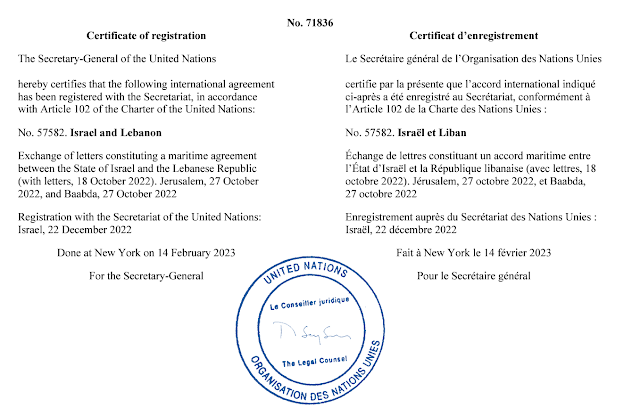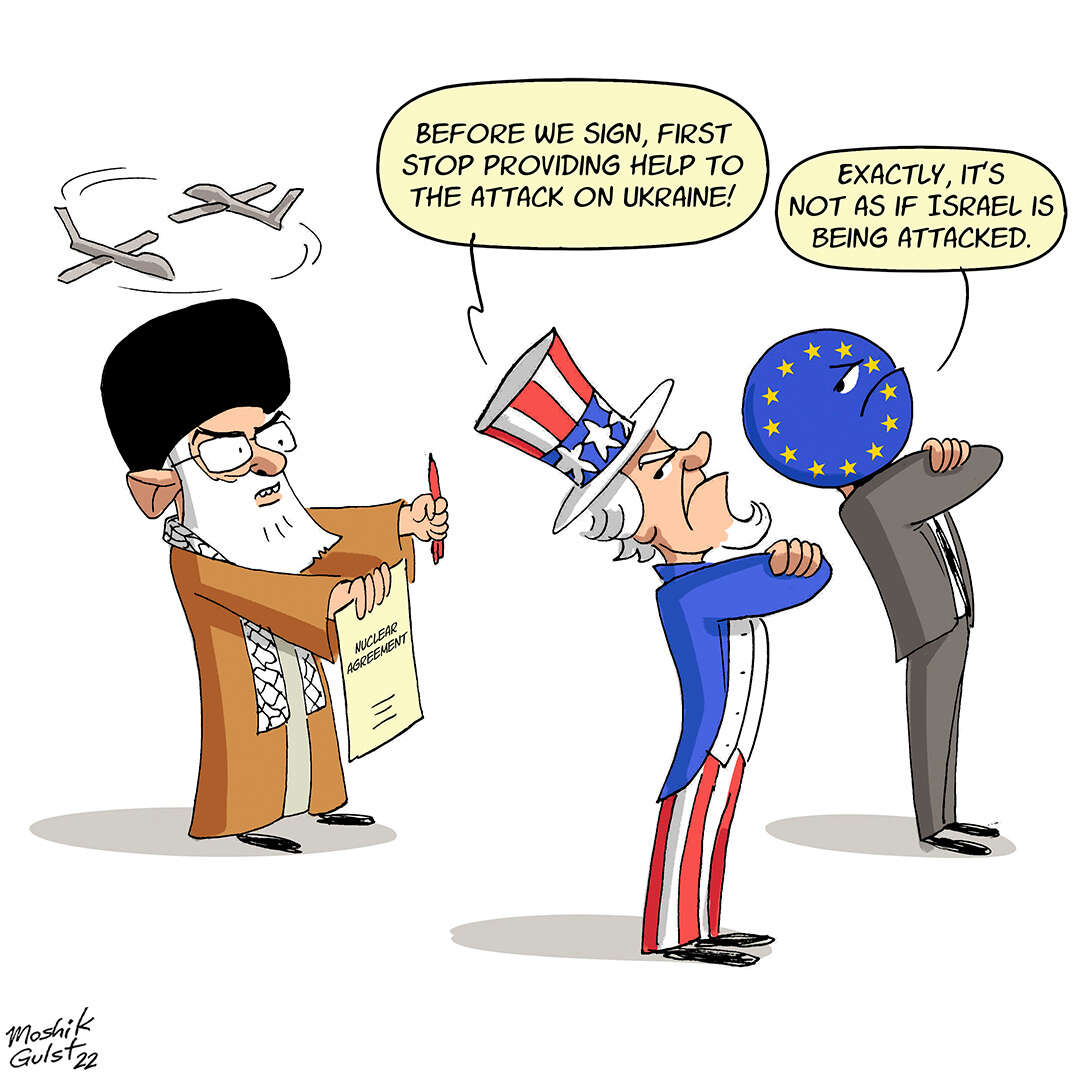From Ian:
Caroline Glick:
Yair Lapid, Authoritarian and Unafraid
Under Israel’s constitutional law Basic Law – Referendums, to come into force all international agreements that involve the concession of sovereign territory require the approval of two-thirds of the Knesset or must pass in a public referendum. Since Lapid’s deal involves the concession of Israel’s territorial waters, under both the spirit and letter of the law, Lapid is supposed to submit the deal to the Knesset for two-thirds approval. In the event, Lapid tried to avoid even presenting the agreement to the Knesset for review. Although Attorney General Gali Miara Baharav issued an opinion that the agreement doesn’t need to be considered under the Basic Law – Referendums (for reasons that aren’t clear), she still insisted that the Knesset must approve the deal by a simple majority.
Lapid, for his part, doesn’t care what his attorney general thinks or what the law says. In response to a reporter’s question at the press conference, Lapid explained how he justifies his decision to act in clear contempt of the law and his attorney general and suffice with government approval of his radical deal with Hezbollah’s stand-in government in Beirut.
As he put it, “In light of the opposition’s unrestrained behavior, we have decided not to bring the agreement before the Knesset for a vote.”
That is, given that his political opponents oppose a gas deal that cedes Israeli territory and natural resources to its sworn enemy, under the gun, and just weeks before a national election, Lapid has decided that the Knesset is unworthy of the honor of approving his deal.
Several commentators have noted that Lapid’s statement demonstrated a contempt for his opposition. But the real problem with his statement, and the sentiment it expressed, is that it demonstrated an utter contempt for the most basic institution in Israel’s parliamentary democracy—the parliament, and for democratic norms.
Probably the worst thing about Lapid’s anti-democratic behavior is that his supportive press is letting him get away with it. While the CEC made Yesh Atid pay Channel 14’s legal costs, it didn’t require Lapid’s party to reimburse the television station for the fortune it paid to run a public campaign against Lapid’s efforts to shutter it. Channel 14 felt compelled to launch its campaign because for the most part, it received no support from its counterparts in the progressive, Lapid-supporting media. Israel Hayom, which changed its editorial line to support the Bennett-Lapid government was the only newspaper to express opposition to Lapid’s campaign against Channel 14. And it did it in a house ad, on page 20 of the paper. With the exception of two or three journalists on the right that broadcast for the other stations, Channel 14’s competitors either said nothing, or expressed support for Lapid’s effort to shut it down.
As for the deal with Hezbollah-controlled Lebanon, most of the media coverage has played down Lapid’s apparent breach of a Basic Law to ram his deal through on the eve of elections. Opposition to the deal has been painted in partisan colors, effecting the sense that the controversy over an agreement which requires Israel to make massive concessions in response to Hezbollah threats is nothing but electioneering.
It is impossible to know how the elections will pan out. There are always last-minute surprises. Netanyahu’s right-wing bloc is consistently polling between 59-62 seats, which makes it far from certain that Netanyahu will be able to form a coalition without making a deal with members of Lapid’s left-Arab bloc. But Lapid’s behavior since taking over the caretaker government makes one thing clear. If he forms the next government, the foundations of Israel’s democratic system and the basic freedoms that citizens of a free society expect, including freedom of the press and representative government, will be imperiled.
David Singer:
Roth confounds UN, USA & Australia: Two-State solution “is gone”
Kenneth Roth – recently retired Executive Director of Human Rights Watch – has undermined the continuation of the policy espoused by the UN, USA and Australia for the last 20 years supporting the the creation of a new Palestinian Arab State between Israel and Jordan for the first time in recorded history (two-state solution).
Addressing a recent discussion hosted by the Washington-based think-tank - Arab Center - Roth declared:
“The two-state solution is great but it's gone”
Roth’s bombshell admission was followed by this statement made by Hady Amr - US deputy assistant secretary for Israeli and Palestinian affairs:
"We remain committed to rebuilding our bilateral relationship with the Palestinian people, with the US president's goal of a two-state solution to the Israeli-Palestinian conflict along the 1967 lines with mutually agreed swaps,"
In reversing Australia’s decision to recognise western Jerusalem, later revoked, as the capital of Israel – Australia’s Foreign Minister Penny Wong said:
“Australia is committed to a two-state solution in which Israel and a future Palestinian state coexist, in peace and security, within internationally recognised borders. We will not support an approach that undermines this prospect.”
UN Secretary-General Antonio Guterres has been repeating a similar mantra since 2017:
“A two-state solution that will end the occupation and, with the creation of conditions, also the suffering even to the Palestinian people, is in my opinion the only way to guarantee that peace is established and, at the same time, that two states can live together in security and in mutual recognition,”
This blinkered approach by the UN, USA and Australia has seen each of them refusing to acknowledge – let alone discuss – the merits of a new alternative solution emanating from Saudi Arabia in June : Shredding the failed two-state solution and calling for the merger of Jordan, Gaza and part of the 'West Bank' into one territorial entity to be called The Hashemite Kingdom of Palestine whose capital will be Amman – not Jerusalem (Saudi Solution).

 Elder of Ziyon
Elder of Ziyon


























.jpg)





